#Mon Oncle Antoine
Text
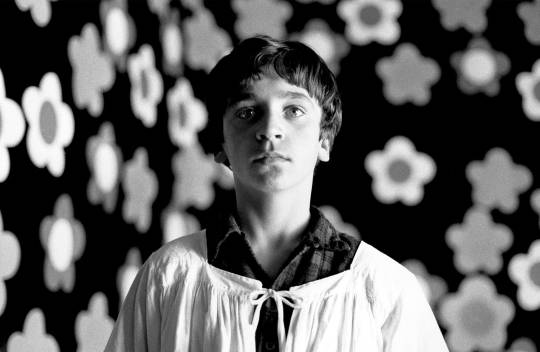
Jacques Gagnon in Mon Oncle Antoine (Claude Jutra, 1971)
Cast: Jacques Gagnon, Lyne Champagne, Jean Duceppe, Olivette Thibaud, Claude Jutra, Lionel Villleneuve, Hélène Loiselle, Georges Alexander, Benoit Marcoux. Screenplay: Clément Perron, Claude Jutra. Cinematography: Michel Brault. Film editing: Claire Boyer, Claude Jutra. Music: Jean Cousineau.
The title of Claude Jutra's richly textured film seems to promise a coming-of-age story, which is what, eventually, it delivers. But first the film acquaints us with a Quebec asbestos mining town in the 1940s. The first event we witness is a fight between a miner, Jos Poulin (Lionel Villeneuve), and his boss (Georges Alexander), which is hardly a fight at all because the boss speaks English and Jos doesn't, which easily allows him to ignore what the boss is saying and do what he wants to do: quit the mine and go look for work elsewhere. Our first look at Antoine (Jean Duceppe) is when he's doing his work as the town's undertaker: a comically macabre scene in which the corpse is denuded of the "suit" he was wearing for the viewing, which turns out to be a false front quickly plucked off the naked body and saved for another corpse, and the rosary is untwined from his stiffening fingers. Antoine is the owner, with his wife, Cecile (Olivette Thibault), of the town's general store, which employs his teenage nephew, Benoit (Jacques Gagnon); a teen girl, Carmen (Lyne Champagne), who lives at the store because her skinflint father (Benoit Marcoux), who pockets her earnings, doesn't want to pay for her upkeep; and Fernand (Jutra), who clerks at the store. It's Christmas time, though there's not much sentiment in the film's treatment of the holiday. One of the best scenes in the movie comes when the mine boss rides through the town in a little two-wheeled cart, tossing cheap gifts to the children as the grownups frown at his stinginess and comment that he hasn't given out any raises or bonuses. Benoit and a friend throw snowballs at the horse, causing the boss to beat a hasty retreat. One of the most celebrated of Canadian films, Mon Oncle Antoine benefits from Jutra's adaptation with Clément Perron of Perron's story, and from Michel Brault's cinematography, but most of all from the great credibility of its cast.
4 notes
·
View notes
Text


isabel, paul almond 1968
#geneviève bujold#isabel#paul almond#1968#marc strange#le chat dans le sac#mon oncle antoine#tess#rosemary's baby#smilla's sense of snow#le fabuleux destin d’amélie poulain#chocolat#black swan#inland empire#one eyed jacks#bandido#das schwein#für elise#élysée
0 notes
Text
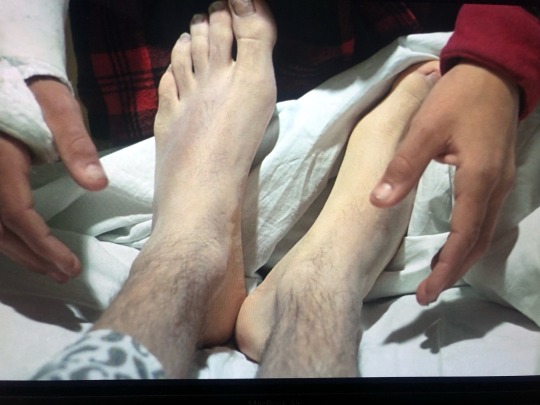
Mon oncle Antoine
Claude Jutra, 1970
0 notes
Text



Automne 1924 - Champs-les-Sims
1/3
Cher cousin,
Je sais que je n'ai pas encore reçu votre réponse, mais je me suis dit que j'allais tout de même vous écrire, au moins une petite lettre.
Tous les changements dont je vous ai parlé se sont bel et bien produits, et la maison est bien vide. Heureusement, cela semble avoir frappé Antoine, car il revient plus souvent à la maison alors même qu'il a commencé ses études. Il n'a pas envie de me l'avouer, mais je crois que ça a aussi beaucoup avoir avec la nouvelle bonne engagée par Maman après le départ de Madame Armadet. Elle s'appelle Aurore Laroche, elle a a peu près notre âge pour peu que je puisse en juger (je n'ai pas osé lui poser la question) et elle est vraiment jolie. Je pense qu'il est clair que mon frère est intéressé, mais de son côté, c'est dur à dire. Elle est assez impassible la plupart du temps, mais c'est vrai qu'elle sourit peut-être davantage quand Antoine est dans les parages. Mais personne ne doit savoir, même pas Maman, et surtout pas Grand-Mère.
Transcription :
Aurore « Que faites-vous là Monsieur ? »
Marc-Antoine « Ah bonsoir ! Je suis venu prendre quelques affaires c’est tout. »
Aurore « Et vous êtes ? »
Marc-Antoine « Pardon ? Oh, je suis Marc-Antoine Le Bris. Heu… et vous ? Je ne vous avais jamais vue. »
Aurore « Ah vous êtes le fils du maître de maison ! Que je suis bête, j’aurai du m’en douter, vous lui ressemblez comme deux gouttes d’eau ! Je suis Aurore Laroche, votre mère m’a engagée comme bonne la semaine passée. »
Marc-Antoine « Enchanté Mademoiselle Laroche. Faites comme si je n’étais pas là. Comme je le disais, je ne faisais que récupérer des affaires. »
Aurore « Je me disais bien que vous aviez passé l’âge de dormir dans la chambre d’enfants. »
Marc-Antoine « Vous seriez surprise. C’est avant tout que j’ai les pieds qui dépassent largement du lit maintenant, alors je me suis installé dans l’ancienne chambre de mon oncle, au grenier. »
Aurore « On ne m’a pas prévenue. Attendez un peu que je monte la faire. »
Marc-Antoine « Ce ne sera pas nécessaire, je peux m’en occuper moi-même. »
Aurore « J’insiste Monsieur, je tiens à bien faire mon travail. Votre mère a dit de façon assez cryptique qu’il me faudrait sans doute faire mes preuves. Alors de quoi aurai-je l’air si je laissais son fils faire la poussière et changer lui-même les draps du lit ? Vous savez au moins que cette chambre n’a pas été occupée depuis des mois ? »
Marc-Antoine « Faire vos preuves ? Je n’y connais pas grand-chose, mais j’ai l’impression que vous tenez plutôt bien l’intérieur. En tous cas de ce que j’en ai vu depuis mon retour. »
Aurore « Je sais, c’est étrange. Votre mère a dit quelque chose à propos de votre grand-mère je crois… »
Marc-Antoine « Attendez, je crois que j’ai compris. C’est ma mère qui vous a engagé ? »
Aurore « Oui. Comme je vous l’ai déjà dit. »
Marc-Antoine « Vous n’êtes pas du coin vous non ? »
Aurore « Je ne vois pas le rapport. Et pour ce que ça vaut, je ne vois pas non plus où vous voulez en venir. »
Marc-Antoine « Ce n’est rien. C’est juste juste, d’ordinaire, c’est ma grand-mère qui engage les domestiques. »
Aurore « Je vois... »
Marc-Antoine « Mademoiselle Laroche, vous avez pénétré par mégarde sur le lieu d’une lutte de pouvoir domestique, et ce dans le camp de ma mère. »
Aurore « Ah… Je comprends mieux pourquoi elle m’a dit que j’étais la seule qu’elle recevait. Et j’imagine que toutes les filles du coin se sont soigneusement tenues à l’écart… Mince ! J’ai bien besoin de ce travail moi ! »
Marc-Antoine « Dans ce cas je suis navré, mais vous voilà coincée avec nous. »
#lebris#lebrisgens5#history challenge#legacy challenge#decades challenge#nohomechallenge#sims 3#ts3#simblr#sims stories#eugénie le bris#Arsinoé Le Bris#Lucien Le Bris#Marc-Antoine Le Bris#Aurore Laroche#Adelphe Barbois#Albertine Le Bris
7 notes
·
View notes
Note
Un futur album doit introduire Octavius.
Baby Auguste doit faire son entrée. Revenu pour un temps de ses vacances de ses études en Grèce.
"Octavius, la bataille va commencer!"
"mais mon oncle, je me sens un peu faible, je dois être malade =("
Parce que Octave/Auguste c'était apparemment tout dans la tête.
Mais dans ce cas là, Marc-Antoine doit aussi faire son entrée. Et l'occasion a été manqué trop de fois maintenant vu que c'était quand même le général "favori" de César XD
Ho ho hooo, Octave l'hypocondriaque ça serait totalement un gag récurrent digne des albums ! Et en plus ça permettrait de faire des blagues du genre "ah Octave, je sais pas trop ce que je vais en faire, ma soeur et moi on s'inquiète pour son avenir, il risque de finir seul et oublié de tous s'il ne se reprend pas en main" etc etc
Un peu comme Brutus et son couteau XD
Je pense que le "problème" de Marc-Antoine, c'est qu'il serait difficile à présenter sans aborder le fait que c'est censé être un ami proche de César mais on ne l'a jamais vu, ou alors qu'il va finir avec Cléopâtre...
Ou bien la BD exagérerait ses traits à fond pour en faire un fanboy casse-pieds dont César se débarrasse régulièrement en l'envoyant en "mission spéciale" à l'autre bout de l'empire.
Personnellement je suis de l'avis qu'il s'entendrait à merveille avec les Gaulois, surtout Obélix...au grand dam de César XD
6 notes
·
View notes
Note
do you have any canadian movie recs 🔍
Lol I should be asking YOU that question! I'm seriously amazed at all the movies you've found and watched
I looked at letterboxd to check if you've seen ones I had in mind and out of the ones you hadn't already seen I'd rec:
Out of the blue 1980
Strange Brew
Mon oncle antoine (the director was a pedophile so watch at ur own discretion etc)
Enemy 2013
Tom at the farm
Indian horse
Trailer park boys 1999 lol
Paperback hero 1973
The silent partner 1978 (they actually film a bit of this in my neighbourhood)
Movies that I've been meaning to watch that you haven't logged on letterboxd:
I love a man in uniform 1993
Fido 2006
Crime wave 1985
The dog who stopped the war 1984
The company of strangers 1990
A married couple 1969
Standing alone 1982
The confessional 1995
The adventure of faustus bidgood 1986
Kitchen party 1997
15 notes
·
View notes
Text
i got my coat at goodwill for $100 the best purchase i have ever made. it doesnt even make me look like an extra from mon oncle antoine.
1 note
·
View note
Text
Gérard de Nerval (1808-1855) – André Nolat
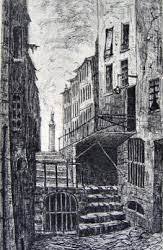
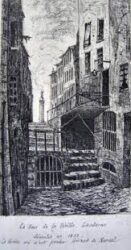
Marqué en profondeur, hanté par la mort de sa mère, impressionné par les paysages et les légendes du Valois où il est élevé à Mortefontaine par son grand-oncle maternel Antoine Boucher car son père est médecin militaire dans la Grande Armée, Gérard Labrunie sera un jeune homme doué (à 18 ans, il traduira le Faust de Goethe), mais déjà en déséquilibre. Ramené à Paris par son père démobilisé avec lequel il ne s’entend guère, après des études au lycée Charlemagne, il s’agrège à la bohème littéraire, au groupe enthousiaste et brillant des jeunes Romantiques : les « Jeunes France » qui déclenchèrent la « bataille d’Hernani », et il prend le nom de Nerval à un clos que possédait à Mortefontaine sa famille maternelle. Il participe à la vie littéraire et politique. Il écrit des poèmes (des « odelettes » telles que « Fantaisie »), des pamphlets, des pièces de théâtre sans grand succès, des contes dont La Main de gloire.
« Fantaisie » est un poème très célèbre dont le texte est reproduit plusieurs fois sur Google. Parue en 1832 dans Les Annales romantiques, cette odelette annonce « l’épanchement du rêve dans la vie réelle » ; plus encore l’œuvre entière, pour qui sait la déchiffrer, rougeoie, sous cette courte pièce, comme le reflet d’un incendie lointain au ras de la nuit…
Libéré pour un certain temps des soucis matériels par un héritage important, il voyage en Italie, en Orient, en Belgique, aux Pays-Bas, à Londres, en Allemagne et, dira-t-il, jusqu’à la tombe de sa mère en Silésie, (de ses voyages, il fera en 1851 un récit quasi initiatique dans Voyage en Orient), il fait la fête rue du Doyenné avec un cercle d’amis, il continue à écrire et il s’éprend d’une actrice du même âge que lui, Jenny Colon, « blonde aux yeux noirs » comme dans « Fantaisie ». Cette passion malheureuse (Jenny se mariera deux fois loin de lui et mourut en 1842), ses errances giratoires dans les bas-fonds de Paris (qu’il décrira en 1852 dans ses Nuits d’octobre) et sa détresse matérielle et morale précipitent son destin. Crise après crise, s’ouvrent devant lui les chemins de la démence (il sera six fois interné) qui le conduiront lors de la glaciale nuit du 25 au 26 janvier dans la sinistre ruelle de La Vieille Lanterne au Châtelet. Au matin, on l’y trouva pendu à une rambarde non loin d’un bouge abominable aux carreaux noyés de petit jour et purifiés par la neige.
Il laisse aussi à la postérité huit poèmes (douze sonnets) étranges écrits entre 1843 et 1853, publiés à la fin des Filles du feu, intitulés Les Chimères et qui demeurent difficiles à expliquer :
« Je suis le Ténébreux – le Veuf – l’Inconsolé
Le prince d’Aquitaine à la tour abolie
Ma seule étoile est morte – et mon luth constellé
Porte le Soleil noir de la Mélancolie. »
Pour ces sonnets, inlassablement, parce que, sans doute, il pressent la mort qui l’appelle sous la misère et la folie qui rôde et gronde, il poursuit ses recherches occultes. Il chante le retour espéré des "anciens dieux", donc du passé, donc de sa mère. Il rêve de faire tenir le temps d’une vie – de sa vie – dans une ronde (mot clé chez lui : voir la ronde de Sylvie et d’Adrienne), un espace de plus en plus serré, circulaire et ainsi justifié.
Read the full article
0 notes
Photo
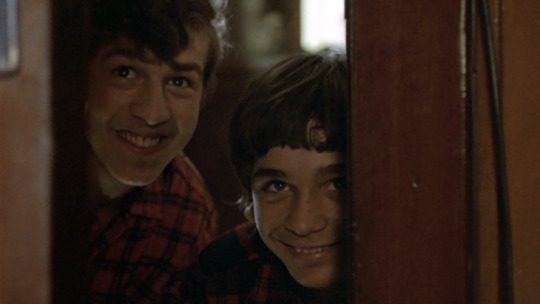
Mon oncle Antoine (1971, Claude Jutra, Canada)
3 notes
·
View notes
Text
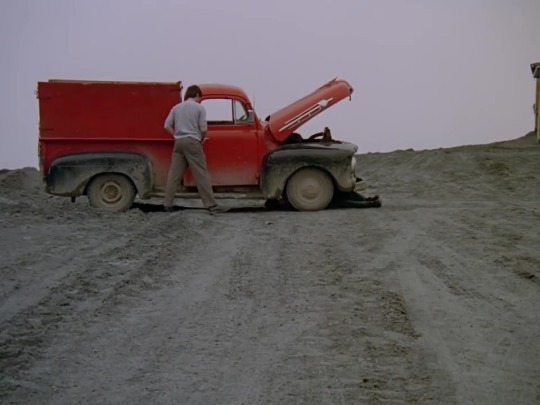
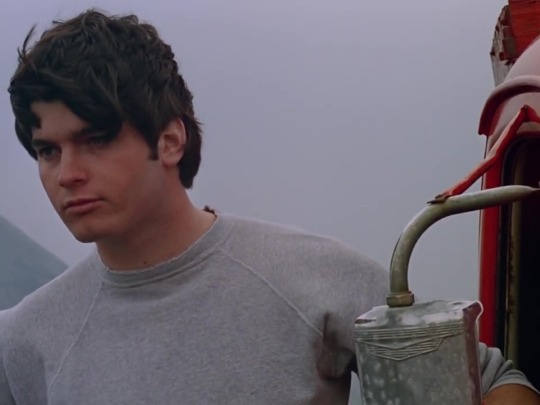
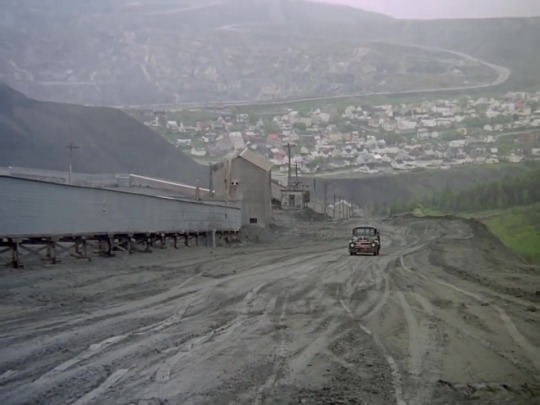
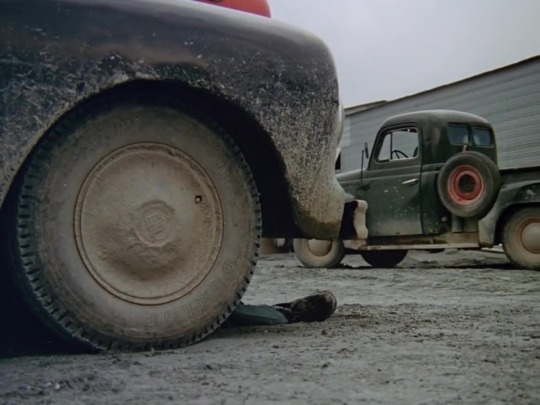
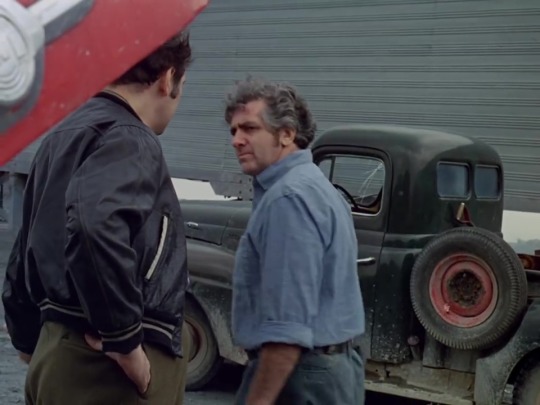
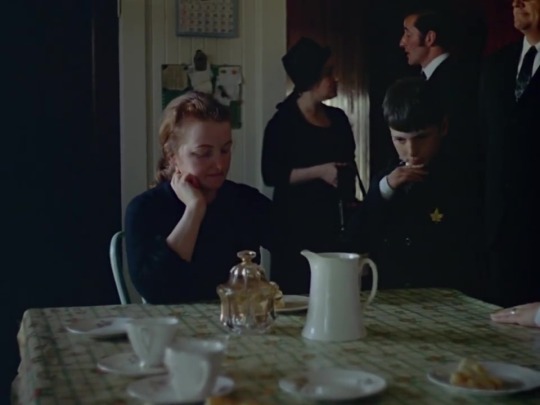
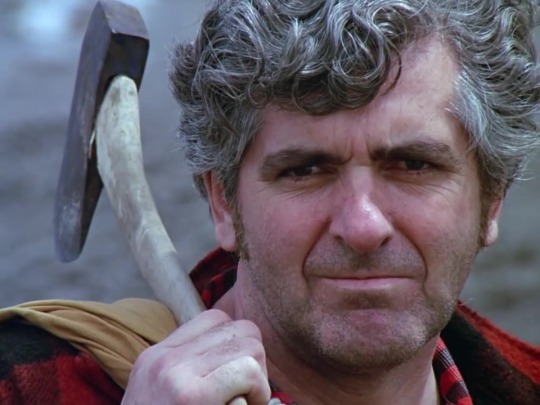
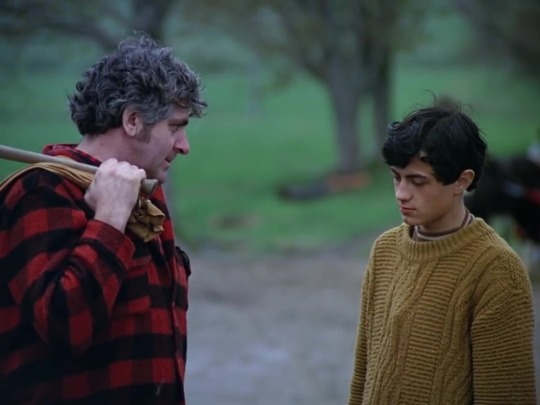

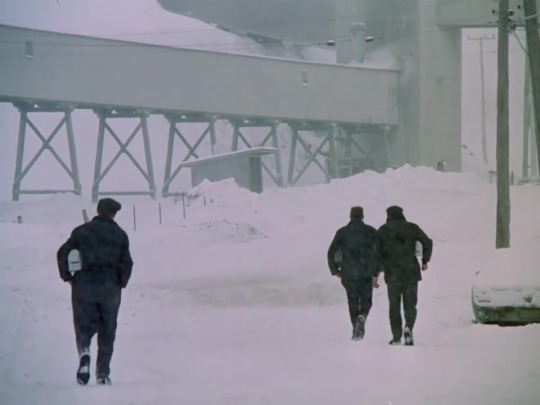
mon oncle antoine, claude jutra 1971
#mon oncle anoine#claude jutra#hamlet#nosferatu#the fearless vampire killers#le chat dans le sac#schultze gets the blues#das weiße band#bergman
2 notes
·
View notes
Text
Day 8, 2022 - Mon Oncle Antoine
Mon Oncle Antoine (1971) Claude Jutra, 1h 44min [QC Thurs]
“I can't, Benoit. Sometimes you just can't.” - Antoine

Claude Jutra’s Mon Oncle Antoine[i] is a coming-of-age story set in 1940s rural Quebec.
Young Benoit (Jacques Gagnon) lives with his Uncle Antoine and his Aunt Cécile, who own the General store. The shop is the hub of this tiny mining town[ii]; you can get anything there from a wedding veil to a barrel of nails – corsets and undertaking services.
It’s December 24and things are hoping at the store. Antoine and Cécile (Jean Duceppe and Olivette Thibauld) are throwing a public Christmas fête in the shop for all and sundry to attend. We meet Fernand (Claude Jutra) the shop assistant who flirts with Cécile, Carmen a shopgirl who Benoit teases, and the various local miners and wives. They are drinking and making merry when a call comes in for an undertaker.

Ferand would usually go but, thinking it will be an adventure Benoit begs his aunt to let him go with his uncle to pick up the body and she concedes – he’s old enough. The trip will be harrowing and eye-opening, just not in the ways he thinks.
You feel the despair in the Poulin home, where their eldest son Marcel passed way. One of the most powerful scenes in the film is when Elise, the dead boy’s mother offers Antoine and Benoit some food. The family has lost a child and brother with their father far away at a logging camp, and still, they must be generous.

The film is artful in how it’s unforced. It’s shot on location with stunning natural light. The landscape is bright and shining with snow, contrasted against hills of asbestos. The sleigh ride that Benoit and Antoine go on is shaky and unsteady, just like their relationship.
Mon Oncle Antoine is a great film. It’s filled with emotion, honest in its approach to characters and deftly captures the intimate politics and class divisions besetting their lives.

I encourage you to watch it.
TRAILER: https://youtu.be/NPbAlXYtsYU
NOTES:
[i] You can watch it for FREE online at the NFB. Fund the arts! Here’s the You.Tube link https://youtu.be/JQ43h-gWZ6Y
[ii] I could to a complete film analysis of Mon Oncle Antoine from an anti-capitalist perspective. It has a lot to say.
#filmpenance#filmpenance2022#film penance#movie review#mon oncle antoine#claude jutra#1971#canadian film#classic film#classic movies#lent#recovering catholic
0 notes
Text


Printemps 1924 - Champs-les-Sims
8/10
D'ailleurs, la question du futur semble être au coeur des préoccupations de tout le monde en ce moment à la maison. C'est à un point ou même Papa s'en mêle. C'est rare de le voir s'investir dans autre chose que son travail. Nous avons aussi appris il y a peu que mon oncle Adelphe serait grand-père sous peu, et Maman dit que cela travaille beaucoup Papa, même si je ne suis pas bien sure de comprendre pourquoi. Mais il faut dire que des choses qui nous paraitraient anodines ont tendance à beaucoup travailler Papa. Tout ce qui touche à Adelphe en fait. D'ailleurs, je l'appelle mon oncle, mais c'est le cousin de mon père, c'est juste qu'ils sont si proches que personne ne fait la distinction pour eux. J'ai l'impression d'avoir répété cette phrase ma vie entière.
Cléo et Antoine vont aller à l'université, et Sélène va aller à Paris pour prendre des cours de tennis avec un champion. C'est son ambition, de vivre du sport et de gagner des tournois. J'aimerai bien un jour vous montrer une coupure de journal qui parle de ma soeur. J'imagine qu'elle finira par épouser son Berto. Ce serait incroyable qu'ils forment un couple de champions de tennis.
Transcription :
Constantin « Dis-moi Sélène, tu ne comptes toujours pas candidater dans une université ? »
Sélène « Non Papa, toujours pas. »
Constantin « Je n’ai pas vraiment saisi ta raison. Je pense que ce serait bien pour toi. »
Sélène « Je ne pense pas que ce serait très utile. Je veux jouer au tennis. Comme joueuse professionnelle je veux dire. »
Constantin « Mais enfin Sélène, courir après une balle, cela ne peut quand même pas remplir une vie. »
Sélène « Mais enfin Papa, creuser dans le sable, cela ne peut quand même pas remplir une vie. »
Constantin « Quoi ? De quoi tu… ? Oh ! Je vois… Enfin je crois. Je pense, ma fille, que nous allons devoir nous accorder sur le fait que nous ne comprenons pas nos intérêts de vie respectifs et qu’il faudra nous efforcer de nous montrer plus ouverts. »
Sélène « Je le pense aussi. Merci Papa. »
Constantin « Mais est-ce que ton Gilberto gagne bien sa vie au moins ? Car si vous vous mariez, je tiens malgré tout à ce que tu conserves une certaine indépendance financière. »
Sélène « Oh non Papa ! Cessez de parler de mariage ! Grand-Mère suffit amplement. »
#lebris#lebrisgens5#history challenge#legacy challenge#decades challenge#nohomechallenge#sims 3#ts3#simblr#sims stories#eugénie le bris#Arsinoé Le Bris#Lucien Le Bris#Sélène Le Bris#Constantin Le Bris#Adelphe Barbois#Albertine Maigret#Cléopâtre Le Bris#Marc-Antoine Le Bris
7 notes
·
View notes
Photo

Another film that Hans would have grown up on is Mon Oncle Antoine.
Set in cold rural Quebec at Christmas time, we follow the coming of age of a young boy and the life of his family which owns the town's general store and undertaking business.
#The Soft-Boiled Detective#Mon Oncle Antoine#Christmas movie#Christmas movie recommendation#movie recommendation
1 note
·
View note
Text
56 french-language film recs!
I wanted to find some movies I can watch to improve my French, so I looked for films available on Kanopy (which is rly cool--if you live in the US, you can stream some movies for free if your library or school subscribes to it!) All of the following films are on Kanopy, and I imagine you can also find many of them on p*racy sites (totally not endorsing that at all no sir!). I’ve listed each film’s title along with its year and score on IMDB. I only included movies with at least 1,000 IMDB ratings and an average of at least 7/10 so they’re all reasonably acclaimed! I also included a short summary of each from IMDB as well. List below the cut because it’s long!
Cleo From 5 to 7 (1962, 7.9 from ~17.0k votes): Cleo, a singer and hypochondriac, becomes increasingly worried that she might have cancer while awaiting test results from her doctor.
The Rules of the Game (1939, 8.0 from ~26.6k votes): A bourgeois life in France at the onset of World War II, as the rich and their poor servants meet up at a French chateau.
Breathless (1960. 7.8 from ~73.1k votes): A small-time thief steals a car and impulsively murders a motorcycle policeman. Wanted by the authorities, he reunites with a hip American journalism student and attempts to persuade her to run away with him to Italy.
The 400 Blows (1959, 8.1 from 105.1k votes): A young boy, left without attention, delves into a life of petty crime.
Purple Noon (1960, 7.8 from 14.2k votes): Tom Ripley is a talented mimic, moocher, forger and all-around criminal improviser; but there's more to Tom Ripley than even he can guess.
The Return of Martin Guerre (1982, 7.4 from ~4.0k votes): In medieval France, some villagers challenge a man's claim of identity when he (as he says) returns home from some time in the army.
Last Year at Marienbad (1961, 7.8 from ~20.3 votes): In a strange and isolated chateau, a man becomes acquainted with a woman and insists that they have met before.
The Wages of Fear (1953, 8.1 from ~54.5k votes): In a decrepit South American village, four men are hired to transport an urgent nitroglycerine shipment without the equipment that would make it safe.
Tell No One (2006, 7.5 from ~50.7k votes): An accidental discovery near a doctor's estate stirs up some painful memories eight years after his wife's hideous murder, and now, things are bound to take a turn for the unexpected. Does the good doctor know more than he's letting on?
Queen Margot (1994, 7.4 from 16.3k votes): Young Queen Margot finds herself trapped in an arranged marriage amidst a religious war between Catholics and Protestants. She hopes to escape with a new lover, but finds herself imprisoned by her powerful and ruthless family.
Un Flic (1972, 7.1 from ~8.2k votes): After a shaky first heist, a group of thieves plan an even more elaborate and risky second heist.
Monsieur Hulot's Holiday (1953, 7.5 from ~16.8k votes): Monsieur Hulot comes to a beachside hotel for a vacation and accidentally, but good-naturedly, causes havoc.
La Haine (1995, 8.1 from ~150.0k votes): 24 hours in the lives of three young men in the French suburbs the day after a violent riot.
Alphaville (1965, 7.1 from 22.9k votes): A U.S. secret agent is sent to the distant space city of Alphaville where he must find a missing person and free the city from its tyrannical ruler.
Tomboy (2011, 7.4 from 18.4k votes): A family moves into a new neighborhood, and a 10-year-old named Laure deliberately presents as a boy named Mikhael to the neighborhood children.
Full Moon in Paris (1984, 7.4 from 3.8k votes): Louise, a young woman, who recently finished her studies in arts, is working as a interior decorator trainee. Playing the game of seduction, her life becomes more and more complicated.
Bob the Gambler (1956, 7.7k from 10.8k votes): After losing big, an aging gambler decides to assemble a team to rob a casino.
La Chinoise (1967, 7.1 from ~6.2k votes): A small group of French students are studying Mao, trying to find out their position in the world and how to change the world to a Maoistic community using terrorism.
The Innocents (2016, 7.3 from ~9.6k votes): 1945. Mathilde is a French Red Cross doctor working on a mission to help the French survivors of the German camps. While she works in Poland, she is asked for help by a nun. In her convent, several nuns are pregnant.
Germinal (1993, 7.1 from ~4.7k votes): In mid-nineteenth-century northern France, a coal mining town's workers are exploited by the mine's owner. One day, they decide to go on strike, and the authorities repress them.
BPM (Beats Per Minute) (2017, 7.4 from ~13.4k votes): Members of the advocacy group ACT UP Paris demand action by the government and pharmaceutical companies to combat the AIDS epidemic in the early 1990s.
Touchez Pas Au Grisbi (1954, 7.8 from ~6.7k votes): An aging, world-weary gangster is double-crossed and forced out of retirement when his best friend is kidnapped and their stash of eight stolen gold bars demanded as ransom.
Jeanne Dielman, 23 Commerce Quay, 1080 Brussels (1975, 7.8 from ~7.4k votes): A lonely widowed housewife does her daily chores, takes care of her apartment where she lives with her teenage son, and turns the occasional trick to make ends meet. However, something happens that changes her safe routine.
Port of Shadows (1938, 7.8 from ~8.2k votes): A military deserter finds love and trouble (and a small dog) in a smoky French port city.
Lumumba (2000, 7.2 from ~1.8k votes): The true story of controversial leader of independent Congo, Patrice Lumumba.
Three Colors: Blue (1993, 7.9 from ~89.6k votes): A woman struggles to find a way to live her life after the death of her husband and child.
The Young Girls of Rochefort (1967, 7.7 from ~8.4k votes): Two sisters leave their small seaside town of Rochefort in search of romance. Hired as carnival singers, one falls for an American musician, while the other must search for her ideal partner.
The Brand New Testament (2015, 7.1 from ~29.8k votes): Did you know that God is alive and lives in Brussels with his daughter?
La Rafle (2010, 7.1 from ~8.2k votes): A faithful retelling of the 1942 "Vel' d'Hiv Roundup" and the events surrounding it.
Diabolique (1955, 8.0 from ~61.4k votes): The wife and mistress of a loathed school principal plan to murder him with what they believe is the perfect alibi.
OSS 117: Cairo, Nest of Spies (2006, 7.1 from ~18.5k votes): Secret agent OSS 117 foils Nazis, beds local beauties, and brings peace to the Middle East.
Mon Oncle (1958, 7.8 from ~18.8k votes): Monsieur Hulot visits the technology-driven world of his sister, brother-in-law, and nephew, but he can't quite fit into the surroundings.
A Man Escaped (1956, 8.3 from ~19.1k votes): A captured French Resistance fighter during WWII engineers a daunting escape from a Nazi prison in France.
The Well-Digger's Daughter (2011, 7.0 from ~3.6k votes): In 1930s southern France, a father is torn between his sense of honor and his deep love for his daughter when she gets in trouble with the wealthy son of a shopkeeper.
Weekend (1967, 7.2 from ~13k votes): A surreal tale of a married couple going on a road trip to visit the wife's parents with the intention of killing them for the inheritance.
Claire's Knee (1970, 7.6 from ~9.0k votes): On lakeside summer holiday, a conflicted older man is dared to have a flirt with two beautiful teenage stepsisters despite his betrothal to a diplomat's daughter and the fact that the girls have boyfriends.
Shoot the Piano Player (1960, 7.5 from ~17.5k votes): Charlie is approached by his crook brother Chico, who is chased by two gangsters. Charlie helps him to escape, but he upsets the criminals, so when his brother Fido is kidnapped, Charlie has to take an attitude with tragic consequences.
My Night at Maud's (1969, 7.9 from ~10.8k votes): The rigid principles of a devout Catholic man are challenged during a one-night stay with Maud, a divorced woman with an outsize personality.
Eyes Without a Face (1960, 7.7 from ~27.5k votes): A surgeon causes an accident which leaves his daughter disfigured, and goes to extremes to give her a new face.
Three Colors: Red (1994, 8.1 from ~90.4k votes): A model discovers a retired judge is keen on invading people's privacy.
The Grocer's Son (2007, 7.0 from ~2.3k votes): Antoine moves home to help his mom drive the mobile grocery, when his dad's hospitalized. He brings Claire along, hoping she'll become more than a friend. He drives around Provence's countryside, selling mainly to old people.
Pickpocket (1959, ~7.7 from 19.6k votes): Michel is released from jail after serving a sentence for thievery. His mother dies and he resorts to pickpocketing as a means of surviva
La Collectionneuse (1967, 7.5 from ~6.6k votes): A womanizing art dealer and a painter find the serenity of their Riviera vacation disturbed by a third guest, a vivacious bohemian woman known for her long list of male conquests.
Code Unknown (2000, 7.2 from ~11.9k votes): A young man harasses a homeless woman, another man protests, the police arrest both and the woman has to leave the country. What were their various story-lines leading up to this event?
Children of Paradise (1945, 8.4 from ~18.2k votes): The theatrical life of a beautiful courtesan and the four men who love her.
The Last Metro (1980, 7.4 from ~12.5k votes): In occupied Paris, an actress married to a Jewish theater owner must keep him hidden from the Nazis while doing both of their jobs.
Danton (1983, 7.5 from ~6.4k votes): In 1793, as the Terror begins in France, Georges Danton, a champion-of-the-people, returns to clash against Maximilien Robespierre and his extremist party.
Orpheus (1950, 8.0 from ~10.5k votes): A poet in love with Death follows his unhappy wife into the underworld.
Lacombe, Lucien (1974, 7.7 from ~6.5k votes): In 1944, an 18-year old boy from small-town France, collaborates with the Nazi-regime and subsequently falls in love with a Jewish gir
L'Atalante (1934, 7.8 from ~14.4k votes): Newly married couple Juliette and a ship captain Jean struggle through marriage as they travel on the L'atalante along with the captain's first mate Le père Jules and a cabin boy.
Le Million (1931, 7.4 from ~3.1k votes): An impoverished painter and his rival engage in a race across Paris to recover a jacket concealing a winning lottery ticket.
La bête humaine (1938, 7.6 from ~6.8k votes): In this classic adaptation of Emile Zola's novel, a tortured train engineer falls in love with a troubled married woman who has helped her husband commit a murder.
Black Girl (1966, 7.4 from ~3.5k votes): A black girl from Senegal becomes a servant in France.
Out 1 (1971, 7.8 from ~1.1k votes): Following the May 1968 civil unrest in France, a deaf-mute and a con artist simultaneously stumble upon the remnants of a secret society.
Les Misérables, Part 1 (1934, 8.2 from ~1.5k votes): The lives of numerous people over the course of 20 years in 19th century France, weaved together by the story of an ex-convict named Jean Valjean on the run from an obsessive police inspector, who pursues him for only a minor offense.
Beau Travail (1999, 7.4 from ~8.5k votes): This film focuses on an ex-Foreign Legion officer as he recalls his once glorious life, leading troops in Djibouti.
131 notes
·
View notes